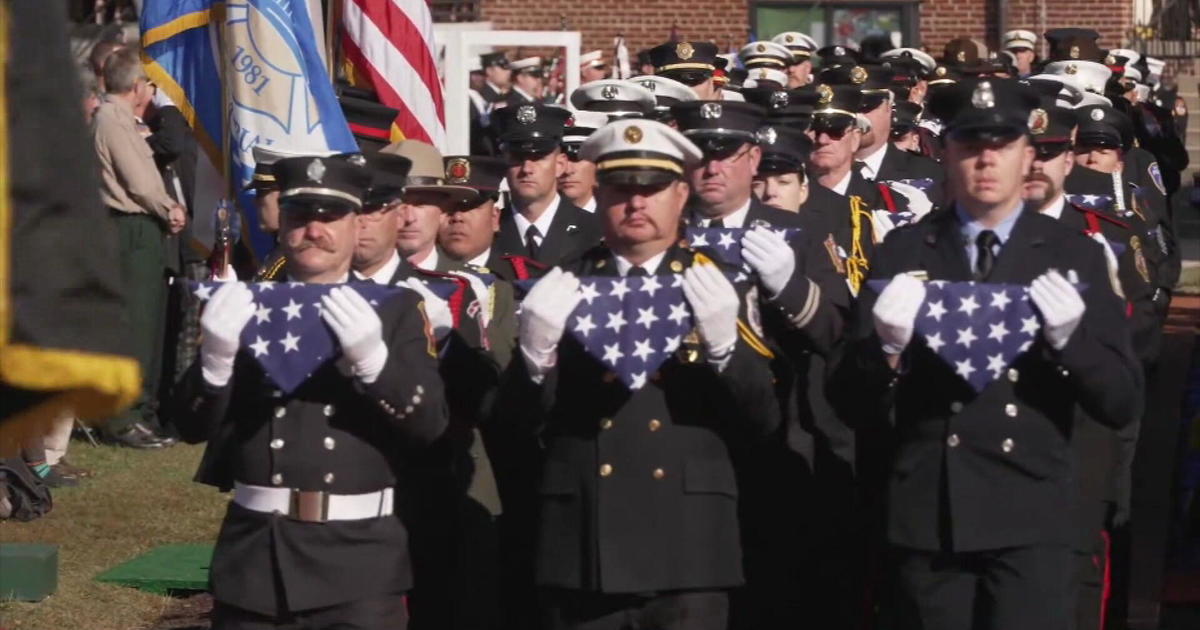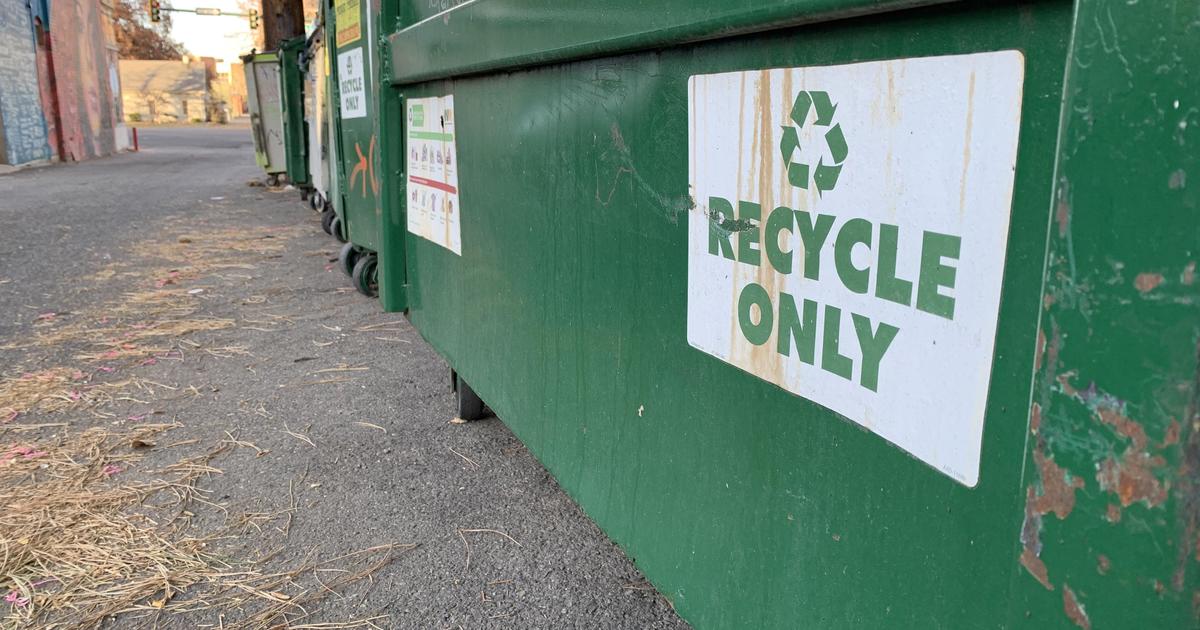In Bid To Keep Office, Hickenlooper Touts Strong Economy, Pragmatic Compromise
CBS4 is profiling six candidates in three extremely close elections in Colorado. Gov. John Hickenlooper is defending his seat against Bob Beauprez, a former U.S. House representative and governor candidate.
DENVER (CBS4) - Colorado rebounded impressively in the four years since Gov. John Hickenlooper's election.
The state ranks near the top of indices measuring innovation, access to capital and workforce education. Its September unemployment rate was 4.7 percent, down from 9.1 percent in October 2010. The state's metro areas are increasingly attractive to technology start-ups.
So what's the problem?
Hickenlooper cruised into office in 2010 -- much on the back of a Republican Party in severe disarray -- and engineered political goodwill, forged relationships with business and environmental groups, and remained the affable leader most seemed to love.
But he's mired in the fight of his short political life with Bob Beauprez, a former U.S. House representative and governor candidate. Poll averages show the pair deadlocked with turnout likely deciding the race. And polls indicate voters are most concerned with the economy, an obvious positive for Hickenlooper.
RELATED: Beauprez Pins State's Success To Local Control, Hands-Off Government
Beauprez says the battle is close partly because the state's economy isn't performing as well as Hickenlooper maintains. Denver and Boulder are sparkling, sure, but rural areas and small communities aren't, he says.
Hickenlooper counters that a recovery takes time.
"It is going to be a rising tide. It never affects everyone the same," he said in a recent interview with CBS4. "There are things we need to do. We have rural economic incentives and ready grants we've been doing out in Montrose and in Grand Junction to try to get small businesses to expand and hire more people."
He said many of Colorado's industries have driven the recovery -- oil and gas, aerospace, technology and health care among them: "A strong, diverse economy really relies on not just one thing."
Hickenlooper said continuing a robust recovery is central to his second term, if he wins, and his focus will be on workers who feel left out.
"Quality of life starts with a good job," he said, "so we've got to focus on people that have been long-term unemployed. We got to focus on young kids. It's been a hard job market for them to get started in. We've gone from 40th to fourth in job creation. But we need to be first."
Compromise Is Necessary In Energy Development
A huge part of Colorado's economy centers on energy, specifically the oil and gas production that's increased significantly in the last 20 years. Hickenlooper, who says it's important to balance business and environmental interests, supports fracking. This summer, he notably hammered out a compromise between pro- and anti-fracking groups that stalled four fracking-related measures from appearing on the November ballot.
As part of the agreement, a commission will study fracking and report its findings to the state legislature.
"I think what this commission is going to do is find a way to empower local communities, city council members or mayors or county commissioners to negotiate with the oil and gas industry," he said. "The oil and gas companies have to go that little bit extra to make sure that if they're close to a dwelling or a school or a hospital, they're going to have to go above and beyond (to mitigate effects)."
Hickenlooper has often said the state's future lies in compromise -- and not just among competing parties, but among Colorado's energy options.
"We are going to keep moving to cleaner energy. We're going to have more wind, more solar, more natural gas," he said.
The governor also said businesses and homeowners must compromise on fracking. Homeowners have a right to the quiet enjoyment of their homes, he said, but mineral owners also have rights.
"We've got to figure out a way to accommodate," he said.
Capital Punishment Tints Governor's Campaign
The thorny issue of Nathan Dunlap is one instance in which Hickenlooper eschewed caution and didn't seek to please everyone.
The choice whether to execute the condemned killer not only dominated the spotlight this summer; it consumed much of Hickenlooper's thoughts.
"I spent more time on this than just about anything I've done," he said.
Dunlap shot dead four co-workers in 1993, but he won a temporary reprieve this year from Hickenlooper, who opposes the death penalty. The governor said he saw three straightforward choices: execution, clemency or a temporary reprieve. He chose the last option because he said he didn't want to "pull the rug out from under the entire legal system."
He talks passionately about his opposition to the death penalty and trots out a variety of arguments to back his decision: its $18 million price tag on appeal is too costly, half the families affected in the Dunlap case were opposed to execution, jurors second-guessed their call for execution, and it's not a deterrent to violent criminals, Hickenlooper said.
"He's going to die in prison," he said. "We could spend $18 million on each one of these capital punishment cases and we could draw it out for 20 years and have the family members have that lack of closure for all this time. Or you could (give him) life in prison without parole."
The Dunlap decision and the fracking compromise have highlighted two sides of a personality trait for which the governor's been criticized: Compromise too much and he's lacking leadership, as Beauprez has alleged. But act unilaterally, and he's defying the wishes of others.
"I don't think I'm the king," he said. "I'm the governor."
Hickenlooper Doesn't Regret Stances On Testy Guns Issues
Hickenlooper said he remains steadfast on two other barbed issues: universal background checks on gun buyers and limits on high-capacity magazines.
After the governor signed the two controversial measures in 2013, Colorado sheriffs and gun manufactures heavily criticized him. But he said he doesn't regret it.
"I think it will make a difference," he said. "I've said again and again I'd sign them again."
He churns out statistics once more to back his stance: According to him, in 2012, 38 people convicted of a homicide tried to buy a gun and the state stopped them. Another 133 convicted of sex assault, 620 burglars and 420 with restraining orders were similarly halted from buying firearms.
"Universal background checks work. The one that I expressed the most reservation about was high-capacity magazines. But in the end you have to come down on the side of public safety. High-capacity magazines aren't used by hunters or people to defend their homes. They are sophisticated ways of killing people," Hickenlooper said.
He cites the 2012 Aurora theater shooting and wonders how many more people would have been killed or injured had the gunman's 100-round magazine not jammed. He also cites another bevy of statistics that he says shows a significant number of police officers killed on duty are gunned down by magazines that contain more than 15 rounds.
He said he doesn't see his signing the measures as dictatorial. In fact, it was another Hickenlooper compromise.
"The way the world moves forward is figuring out what are the compromises and how do you get people to work together on difficult issues, like guns," he said. "I tried to find some middle ground. I don't think that's an awful thing."



